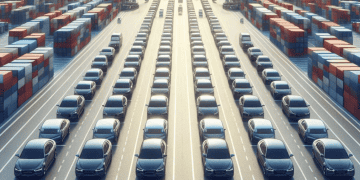The automotive sector in Mexico has experienced notable developments in the realm of imports, influenced by evolving data management and technological advancements. In recent years, the importation of vehicles and automotive parts into Mexico has seen significant changes, largely driven by advancements in data analytics and technology.
The Mexican automotive industry, which is a crucial component of the country’s manufacturing sector, has increasingly relied on data-driven strategies to optimize its import processes. Companies within this sector are leveraging advanced technologies to enhance efficiency and accuracy in their supply chains. The integration of data analytics tools allows for better forecasting, inventory management, and logistics coordination, which are essential for streamlining the importation process.
Technological innovations, such as the implementation of automated systems and artificial intelligence, have also played a pivotal role in transforming how automotive imports are managed. These technologies enable real-time tracking of shipments, improved quality control, and more efficient customs processing. As a result, companies are able to reduce lead times and mitigate potential disruptions in their supply chains.
In addition to technological advancements, regulatory changes and trade agreements have further impacted the automotive import landscape in Mexico. The country’s trade policies and agreements with other nations influence the flow of automotive products and components, affecting both the volume and value of imports. Companies must navigate these regulations carefully to ensure compliance and to capitalize on opportunities for growth.
The Mexican government has been proactive in supporting the automotive industry by fostering a conducive environment for investment and innovation. Initiatives aimed at modernizing infrastructure and enhancing technological capabilities are expected to further bolster the industry’s competitiveness on a global scale.
Overall, the interplay between data management, technology, and regulatory factors continues to shape the dynamics of automotive imports into Mexico. As the industry adapts to these changes, it is likely to see continued improvements in efficiency and growth opportunities.
Stay current with supply chain news on The Supply Chain Report. Free trade resources are available at ADAMftd.com.
#AutoImports #MexicoAutomotive #DataTrends #TechAdvancements #SupplyChainOptimization #AutomotiveInnovation #RealTimeTracking #AIinAutomotive #ImportEfficiency #RegulatoryImpact #TradeAgreements #ManufacturingSector #DataAnalytics #TechIntegration #VehicleImports #CustomsProcessing #IndustryGrowth















